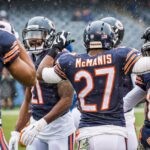California’s tribal gaming leaders target prediction market apps

California’s tribal gaming leaders say online prediction market platforms, not daily fantasy sports apps, pose the biggest threat to their sovereignty and revenue base, according to KCRA 3.
In an interview on TV show, California Politics 360, the chairman of the California Nations Indian Gaming Association, James Siva, said the rise of apps that offer sports event contracts is a growing concern.
Siva said, “The emergence of prediction markets and these sports event contracts being offered by companies such as Kalshi, Crypto.com, Robinhood. Those offerings have much, have much more concerns for tribes, at the moment.”
Three tribes filed a federal lawsuit against Robinhood and Kalshi, alleging the companies are offering unauthorized sports betting products in California, including on tribal lands. The suit seeks to block both firms from operating in the state and requests financial damages.
Kalshi launched its first sports contract in January and reportedly handled US$130 million in bets during the NBA Finals and US$500 million during March Madness. In partnership with Kalshi, Robinhood began offering NFL and college football prediction markets in August.
The companies argue their activities are not equivalent to sports betting, describing event contracts as financial instruments traded in open markets where prices are set by buyers and sellers.
Court filings show Robinhood and Kalshi claim they would face “substantial and irreparable harm” if the tribes’ injunction were granted.
A hearing is scheduled for October 23 in San Francisco.
Charlotte Capewell brings her passion for storytelling and expertise in writing, researching, and the gambling industry to every article she writes. Her specialties include the US gambling industry, regulator legislation, igaming, and more.
Verticals:
Sectors:
Topics:
Dig Deeper
The Backstory
How prediction apps became a flashpoint
California tribal leaders view app-based prediction markets as a direct challenge to their sovereignty and casino-based economies, elevating them above daily fantasy sports as a near-term threat. The concern hinges on whether “event contracts” for sports outcomes function as de facto wagers, which would infringe on the tribes’ exclusive rights in the state and bypass negotiated compacts. That dispute now sits before a federal court in San Francisco, where three tribes seek to block Robinhood and Kalshi from operating in California and to recover damages. The companies say their products are tradable financial instruments, not bets, and warn of “irreparable harm” if an injunction is granted. The fight arrives amid a rapid commercial push by financial platforms into sports-linked contracts, as well as uneven regulatory responses that have sowed confusion over where finance ends and gambling begins.
Speed and scale behind event contracts
Robinhood accelerated the market this year by embedding a prediction hub within its brokerage app, using its derivatives arm to route customers into event contracts on sports and other topics via Kalshi. The company promoted the tool as a way for users to trade around news, politics and culture and emphasized compliance with existing rules. The launch in March coincided with the NCAA basketball tournament and set a playbook for how mainstream finance apps could convert trading activity into event-based speculation. For context, see the platform’s rollout of prediction markets in time for March Madness.
On the supply side, Kalshi widened access by listing sports contracts in January in a simple “will team win title” format. That move followed the exchange’s legal victory over the Commodity Futures Trading Commission on election markets the prior year, emboldening its expansion into sports and signaling that event markets could survive regulatory scrutiny in at least some categories. The company’s step into sports is detailed in Kalshi’s launch of sports event contracts.
The result has been significant user engagement and volume. Industry tallies cited by executives show that Robinhood customers can account for a sizable share of Kalshi’s daily activity, and that broader prediction markets handled heavy flows around the NFL, college football and marquee events. That traction has turned a niche product into a mainstream revenue line and intensified debates about jurisdiction, consumer protection and tribal rights.
Regulators redraw lines in real time
Regulation remains fragmented and fast changing. Robinhood’s initial attempt to launch Super Bowl contracts drew an intervention from the CFTC, which forced a pause in rollout and foreshadowed the agency’s discomfort with sports-linked instruments offered through financial channels. The history is recapped in coverage of the app’s March launch. Kalshi’s own expansion into sports came after back-and-forth with regulators over election markets and illustrates how each event category can pose distinct legal questions under commodities and gaming laws. See Kalshi’s filings and timeline for the latest sports listings.
The rules are even less settled for competitors operating outside federally supervised exchanges. Crypto.com listed Super Bowl markets and reportedly resisted CFTC requests to pull them pending review, underscoring the jurisdictional tension that arises when a product sits between financial trading and gambling. That dynamic matters in California, where tribes argue that any sports-contingent payout offered to residents runs through their compacted authority. As state and federal agencies weigh boundaries, the court case brought by tribes against Robinhood and Kalshi could set an influential marker for how companies frame event contracts and where they may operate.
Wall Street’s embrace raises the stakes
Investor enthusiasm has amplified the pressure to keep markets open. Analysts at Piper Sandler estimate prediction markets already contribute about $200 million to Robinhood, supporting a higher price target and a bullish thesis as football season boosts volumes. The firm’s research, which notes a revenue split with Kalshi and a per-contract fee structure, captures how incremental activity can scale across millions of trades. The financial angle is laid out in Piper Sandler’s assessment of Robinhood’s prediction market surge.
Strategically, Robinhood has signaled it could expand through acquisitions or a joint venture to consolidate product and reach, even as it leans on its engineering bench to iterate in-house. The company’s leadership framed the market as a post-election growth lane, with Robinhood users contributing a meaningful slice of Kalshi’s daily volumes. The broader momentum is visible across operators: Kalshi and Polymarket reportedly posted $1.4 billion in volume last month, while Intercontinental Exchange took a $2 billion stake in Polymarket, according to coverage of industry investment. For more on the platform’s options and the sector’s scale, see Robinhood executives weighing acquisitions or a JV.
The capital rushing in makes the California clash more consequential. A court-ordered halt would not only undercut revenue guidance for Robinhood and Kalshi but also dampen appetite for deals and new listings tied to sports outcomes. Conversely, a decision favoring the firms could spur broader adoption, invite copycat offerings and pressure state regulators to redefine what requires a gaming license.
California’s decision point
The San Francisco hearing on Oct. 23 will test two interpretations: whether event contracts on sports are financial instruments overseen by commodities law or sports wagers requiring state gaming approval and tribal consent. The answer carries practical consequences for enforcement, taxation and consumer protections. Tribes argue that app-based markets siphon off demand that supports public services tied to gaming compacts. They also warn about an uneven playing field if Silicon Valley and Wall Street can offer sports-contingent payouts without the obligations imposed on casinos.
Robinhood and Kalshi counter that their contracts are priced by market forces, not a house, and settle mechanically at $1 for “yes” and $0 for “no,” placing them nearer to binary options than to sportsbook lines. The court’s framing will influence whether firms need state-by-state approvals, how age and location checks are applied and what disclosures or limits would govern retail access. A preliminary injunction would freeze momentum heading into peak football and basketball windows. A denial would grant the companies running room while the case proceeds, potentially shaping negotiations with state agencies and tribal representatives.
A global echo of sovereignty concerns
California’s dispute aligns with broader pushback from Indigenous leaders facing digital gambling shifts. In New Zealand, tribal representatives urged the government to pause plans to auction online casino licenses, warning that offshore operators would not honor obligations to communities and could worsen problem gambling. The debate mirrors California’s in its focus on who benefits from internet gaming and who bears social costs when regulation lags innovation. The parallels are outlined in New Zealand tribal leaders’ call to pause online gambling changes.
As prediction markets mature, policymakers are being asked to reconcile financial innovation with long-standing gaming frameworks and sovereignty commitments. California’s ruling could become a template for other states wrestling with the same fault line between markets and bets.






